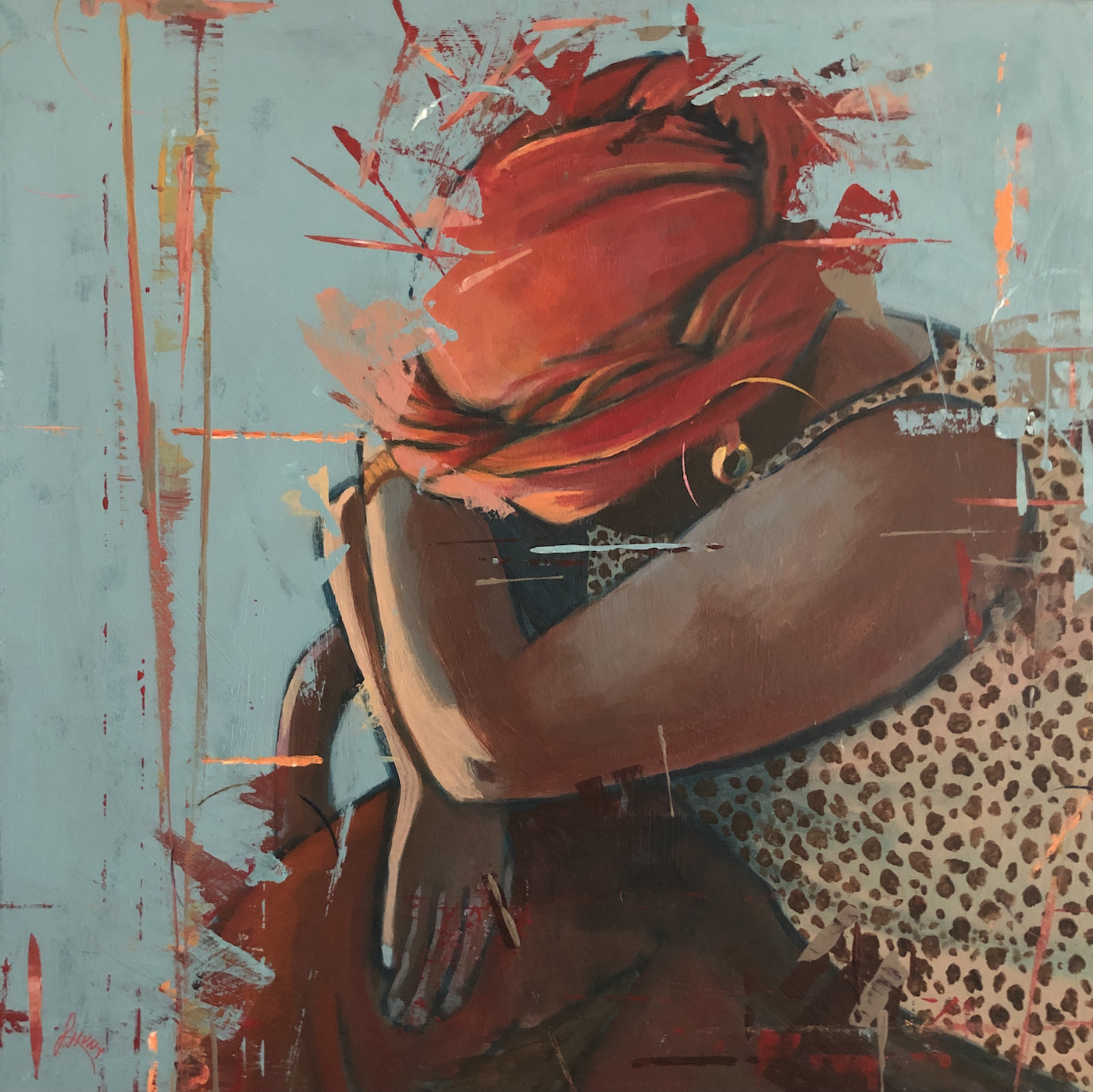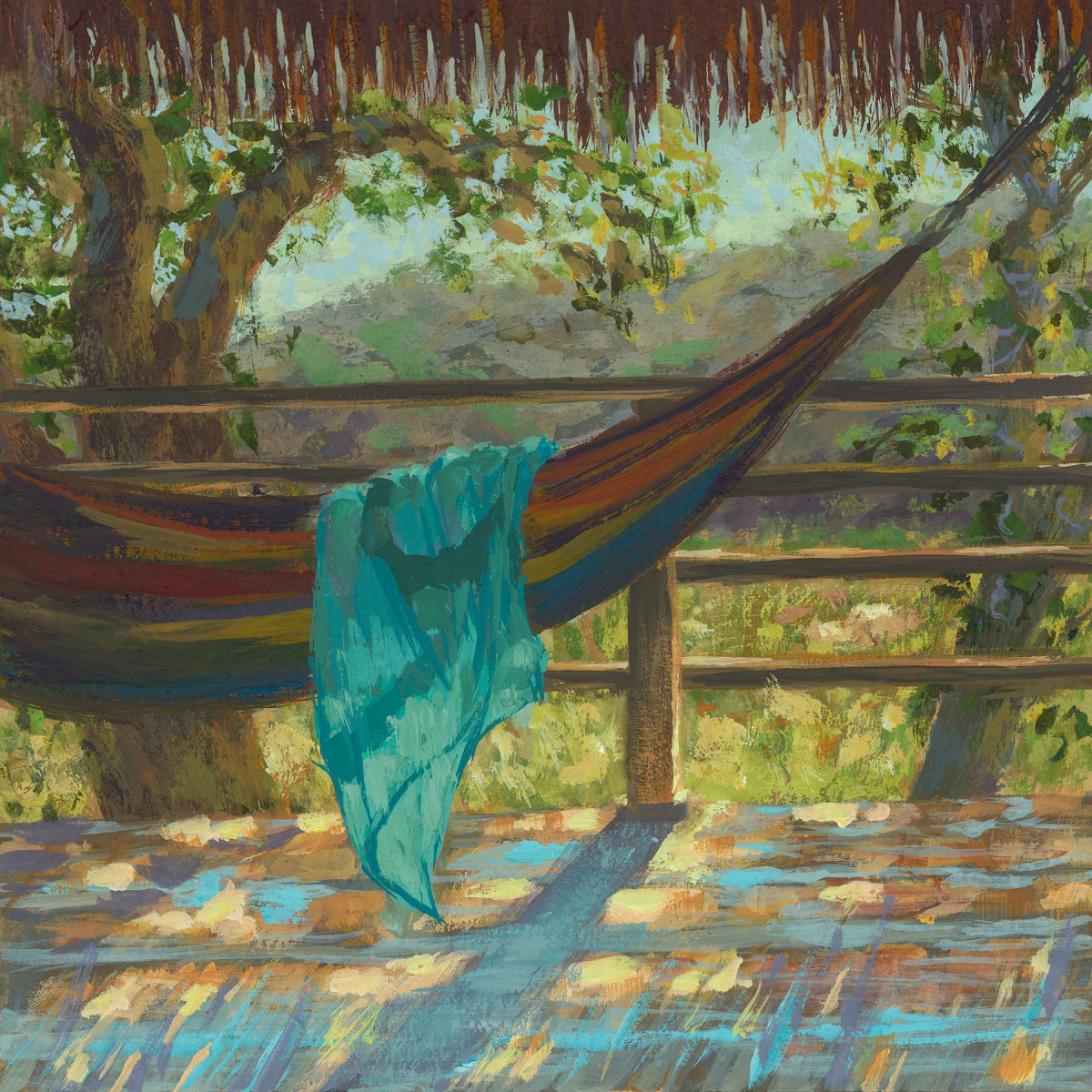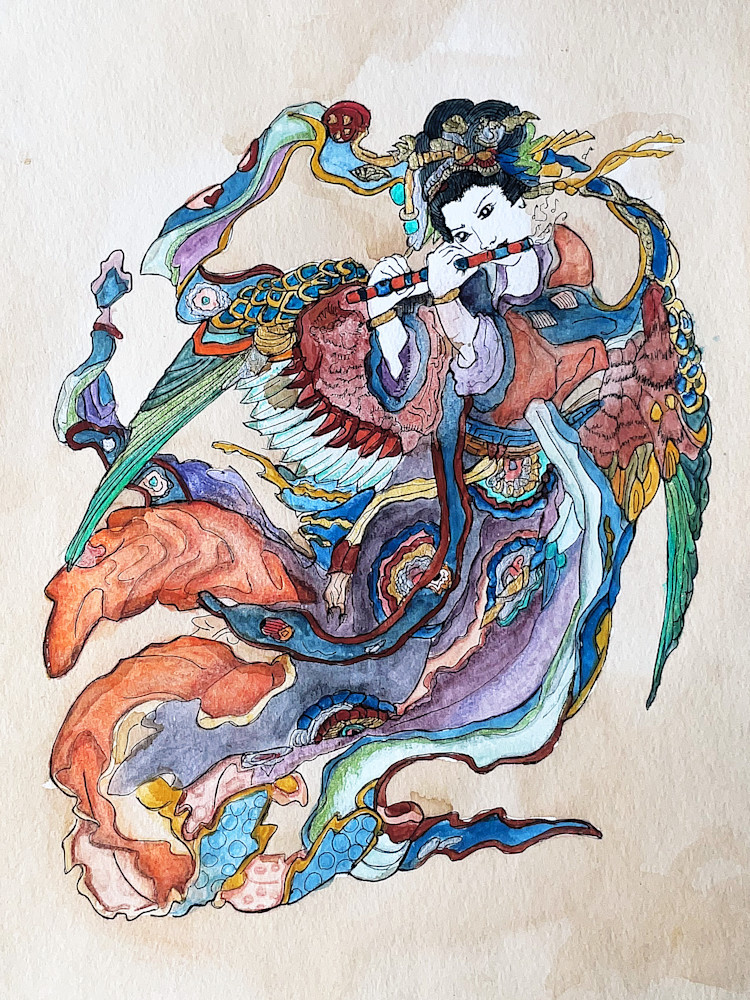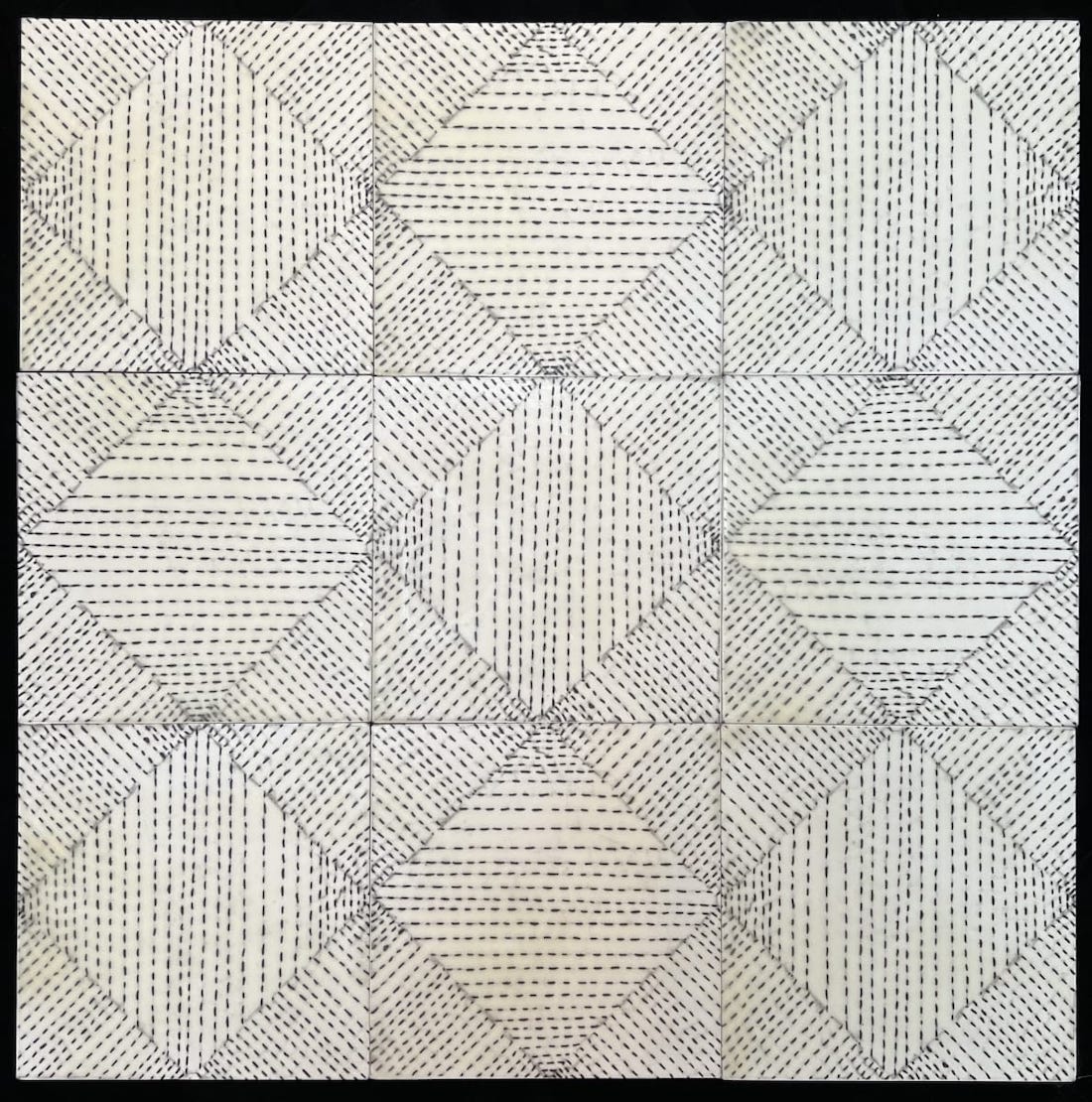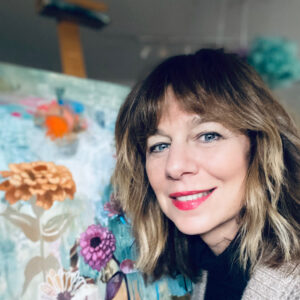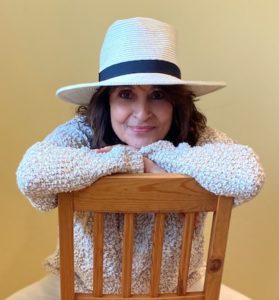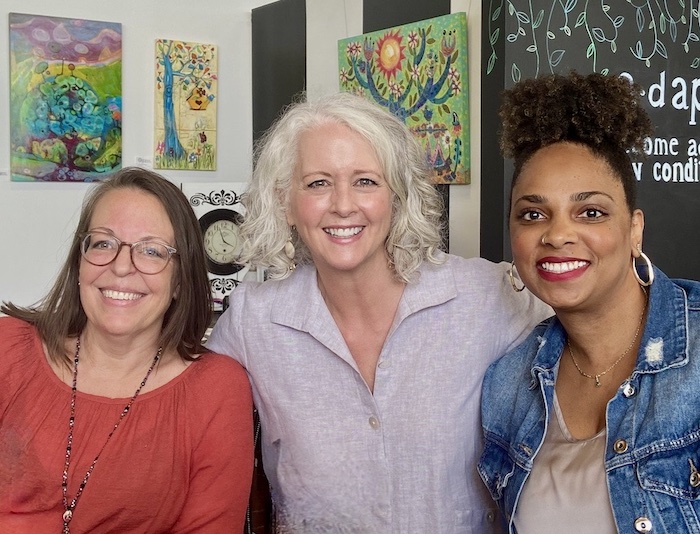This article is for you if you understand the value of being a guest on The Art Biz or any of the other kajillion podcasts out there. You’ll also find solid tips for how best to pitch your art to anyone for publicity.
Because I can only speak for myself, I’m going to guide you on how to make that happen for The Art Biz.
It’s straight talk without beating around the bush because I see it as part of my job at Art Biz Success to provide information like this that will help you further your goals.
First, let’s get one thing clear: You have a story to tell.
You Have a Story to Tell
Every single artist has a unique journey—no one, past, present, or future, has walked the exact same path as you. It’s time to dive deep into your story, to share it with confidence, and to attract more fans, followers, and collectors along the way.
Sure, it can be uncomfortable. You might not love how it sounds the first time you share it. That’s why practice is essential.
The more you tell your story, the better it will become, and the more you’ll find yourself using it in all kinds of situations, such as exhibition openings or in grant or residency applications. Your story will shine with practice.
Someone out there is waiting to hear your story. Maybe not the masses, maybe not the Pulitzer committee, but the right person.
Listen
You're Always Pitching Your Art
I’m not crazy about the word “pitch” but I’m going with it. I use it in the sense that you are making an argument for something. You’re making an argument that I should pay attention to what you have to say or show.
Whether you think about it in these terms or not, you’re pitching your story all of the time. (And, by the way, I’m more than okay if you find a better word to use than “pitch.”) You’re pitching your story when …
- You post about your art on social media.
- You send an email to your list.
- You submit to an exhibition, send in a grant application, or apply to an artist residency.
- You ask for gallery representation.
- And take a minute to let this sink in. You’re (hopefully) pitching your story when you tell anyone you’re an artist. Anyone. At any point.
The more interviews you do and the more experience you get, the better you become at telling your story. You will also grow your audience and maybe even sell some art or attract new students and social media followers. You never know who is listening.
You Get 1 Chance
I get all kinds of pitches: from people who want to be on the podcast to those who want to write guest posts on my blog. The potential podcast guests usually come from an agency someone hired to get them publicity.
[ As an aside, it is rare that I get a good pitch from an agency that understands what my audience is interested in. ]
The best pitches I receive come from artists themselves, but, in the past, I have had to spend a lot of time helping them get to the essence of their story. This is time I am no longer willing to spend. Your chances of getting on The Art Biz are much greater if you have done the work before contacting me.
Here’s the thing. You pretty much get 1 chance to pique my (or someone else’s) interest in your story. If you don’t do your homework and if you aren’t careful about what you’re writing, you are just wasting your time. And mine.
Here’s how to make the odds work in your favor.
5 Steps to Pitch Your Story to Me (adaptable)
This is the minimum I seek from potential pitches. It’s all about what I’m looking for on The Art Biz, but I believe you can easily adapt it for other situations.
1. Listen to episodes of The Art Biz and read my blog.
It is abundantly clear from a pitch if you have a clue about The Art Biz and programs at Art Biz Success. If you listen to my podcast, you understand the type of questions I ask of my guests and that the focus is on the business of being an artist.
I’ll also know whether or not you paid attention to the details I spelled out for you in this article. 😉
2. Research.
Look me up. Show that you respect me and the work I’m doing and I am much more likely to listen to your pitch. Here are a few highlights I think you should know about before coming on this show.
- I’ve been helping artists figure out their business strategies and career moves since 2002.
- Before that I was a curator and educator in art museums for 10 years. I have a master’s degree in art history—I am steeped in the tradition and history of art.
- I wrote a book that had 4 printings and has been on artists’ shelves around the world since 2008.
- I created ESSENTIALS for Artist Success to give artists the foundational training they need to run a profitable art business. I also lead the Art Biz Connection for artists who want a go-to supportive and structured online community, and the Art Biz Accelerator for ambitious artists who are seeking a higher level of support.
3. Figure out the business lesson you have to share with my listeners.
You want to make it easy for me to envision the story and say Yes. I’ll give you some content ideas in the next section.
As I say in my book, the fact that you make art isn’t news. The fact that you have written a book, taught classes, or have a show isn’t newsworthy either. What’s your spin on those things that so many other artists also do?
While I’m talking about what is and isn’t newsworthy, please don’t send me a pitch that is like an episode you just heard on The Art Biz. It’s okay if your story is similar, but I’m not even going to look at it unless you can tell me how yours builds on the other interview.
While it doesn’t have to be groundbreaking, you do have to have your own perspective on a topic rather than rehashing an episode that has already been published.
4. Prove that you can speak with authority.
If you have been a guest on other podcasts or shared your story in a video, share that link with me. Not everyone makes a good podcast guest. It’s reassuring if I can see or hear you speak.
You don’t have to be brilliant, but a little experience helps.
5. Submit your pitch.
I’ve made it really easy for you to tell me why you would make a good guest on The Art Biz. It’s a fill-in-the-blanks form with all the elements you’ll need, including a place to link to any other interviews you’ve done or videos you’ve made.
It’s a good idea to keep reading before filling out that form.
Need Some Examples?
While not a comprehensive list, this should give you some ideas.
Successes and Failures
It’s fun to share stories of success.
- In episode 162, Kelly Pelfrey designed a rhythm to her schedule, especially her commissions, in a way that that allows her to know exactly what her income will be every month.
- As a result of preparing for our interview for episode 157, Sarah Becktel discovered she had increased her self-sales by 400%.
But, secretly, what I really want to hear about are challenges you have overcome. This is not to be sadistic, but because we learn more from failures.
If you aren’t afraid to be vulnerable, I would love to hear about your struggles.
- Jan Heaton discusses how she was able to work on her art throughout the long illness and eventual passing of her daughter in episode 52.
- Annie Salness talked about overcoming a stroke and learning to paint with her non-dominant left hand in episode 16.
- David Sandum opened up about how art has been his rock throughout his battle with depression in episode 169.
Maybe your struggles aren’t matters of life or death, and I really hope they aren’t. Perhaps you had an exhibition that nobody came to or a workshop that nobody signed up for? If you analyzed it afterward, there’s plenty to take away from the experience that could help others.
We love to hear this stuff! It helps us remember that we aren’t alone.
Community Connections and Getting Organized
I love stories about how artists connect to their communities. Like the connections Jan McCarthy makes regularly and discusses in episode 158. Same goes for Michael Gadlin in episode 93.
Perhaps you have something to share about organizing your life and business.
Daryl Johnson (episode 49) spent a year cleaning out her life to prepare for a big move and sold a lot of work in the process. Fiona Valentine also gave organizing tips in episode 38 and Heather Powers bravely started a discussion about leaving your estate in order for your loved ones (episode 143).
How do you create balance in your life?
How do you get stuff done?
How do you use a particular tool or piece of technology to improve your results?
How does meditation help you stay focused in the studio?
Or even … WHY are working the way you are right now? In episode 72, Dawn Williams Boyd, whose works are now entering major museum collections, shares how she plans 12 months’ worth of artwork at the beginning of each year.
There Is Still Room for Your Story
After that list, you might assume, incorrectly, that it’s all been said before.
As you can see just from these examples alone, I’ve done (at least) 3 episodes on getting organized and 2 on leaving your galleries. And they’re completely different from one another because—do I need to say it again?—each artist has their own take on a topic.
Nobody has walked your path. You have unique experiences that are worth sharing, but you need to get clear about what they are.
Know that everything you do to prepare your story for me can also be repurposed for other marketing efforts. This is a great use of your time.
Successful Pitches
These artists have submitted successful pitches to be a guest on The Art Biz.

